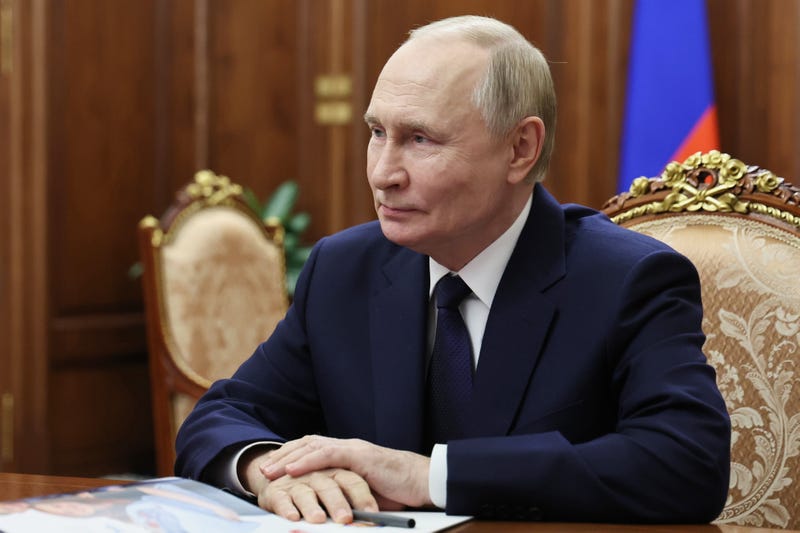
Russian lawmakers Tuesday endorsed a bill mandating year-round military conscription, rather than just in the spring and fall, as authorities seek to fill the ranks as fighting in Ukraine grinds through a fourth year.
The legislation, which was approved by the lower house, the State Duma, in a third and final reading of the measure, turns conscription into a permanent process.
Once the bill is vetted by the upper house and signed into law by President Vladimir Putin, it would allow conscription offices to summon draftees for medical exams and other procedures at any time of the year.
The bill’s authors say the measure is intended to ease pressure on military conscription offices and streamline their activities, which includes performing the physicals and assigning conscripts to various military branches.
Even though the bill will make conscription a year-round process, it stipulates that conscripts will enter military service only during a few spring and summer months as before.
All Russian men aged 18-30 currently are obliged to serve in the military for one year, although many avoid the draft by using deferments granted to students, those with chronic illnesses, and for other reasons.
The military has called up between 130,000 and 160,000 draftees during each round of conscription.
Russian authorities say the military doesn’t use draftees in Ukraine, relying on volunteers and reservists who were mobilized for action. Human rights activists and media reports have said, however, that the military has sought to encourage or coerce many draftees into signing contracts as volunteers.
Russia, which had an army of 1 million when Putin sent troops into Ukraine in February 2022, has gradually increased its size as the fighting dragged on.
Last year, Putin ordered the number of active troops to be increased by 180,000, to 1.5 million. He said last month that the military has over 700,000 troops fighting in Ukraine.
As part of their efforts to combat draft evasion, authorities earlier this year launched an electronic register of conscripts to serve online summonses in some Russian regions. They also introduced a series of legal restrictions for those who ignore the summonses, including banning their bank transactions, suspending their driver's licenses and blocking foreign travel.
Amid Russian military setbacks early in the fighting, Putin ordered a “partial mobilization” of 300,000 reservists in the fall of 2022, a widely unpopular move that prompted hundreds of thousands to flee abroad to avoid being called for service.
While Putin’s decree held the door open for calling up more reservists, the Kremlin has changed course and focused on bolstering its forces with volunteers, who were offered relatively high wages and other benefits.
Authorities reported that about 440,000 volunteers joined in 2024 and another 336,000 people signed military contracts this year.
But even as the military has sought to attract more volunteers, lawmakers approved another bill Tuesday that stipulates using reservists for protecting “critically important facilities” in some regions -- a measure its authors said was intended to bolster defenses against Ukrainian drones that have ranged more than 1,000 kilometers (over 600 miles) deep inside Russia.
The measure will not apply to all reservists — only those who voluntarily signed contracts to be in the active reserve.
The Kremlin efforts to increase the ranks came as Putin has resisted U.S. President Donald Trump's demand for a quick ceasefire and maintained the Kremlin's maximalist demands that include Ukraine's withdrawal from the four regions that Russia has annexed but never fully captured. Kyiv and its Western allies have rejected Putin's demands.